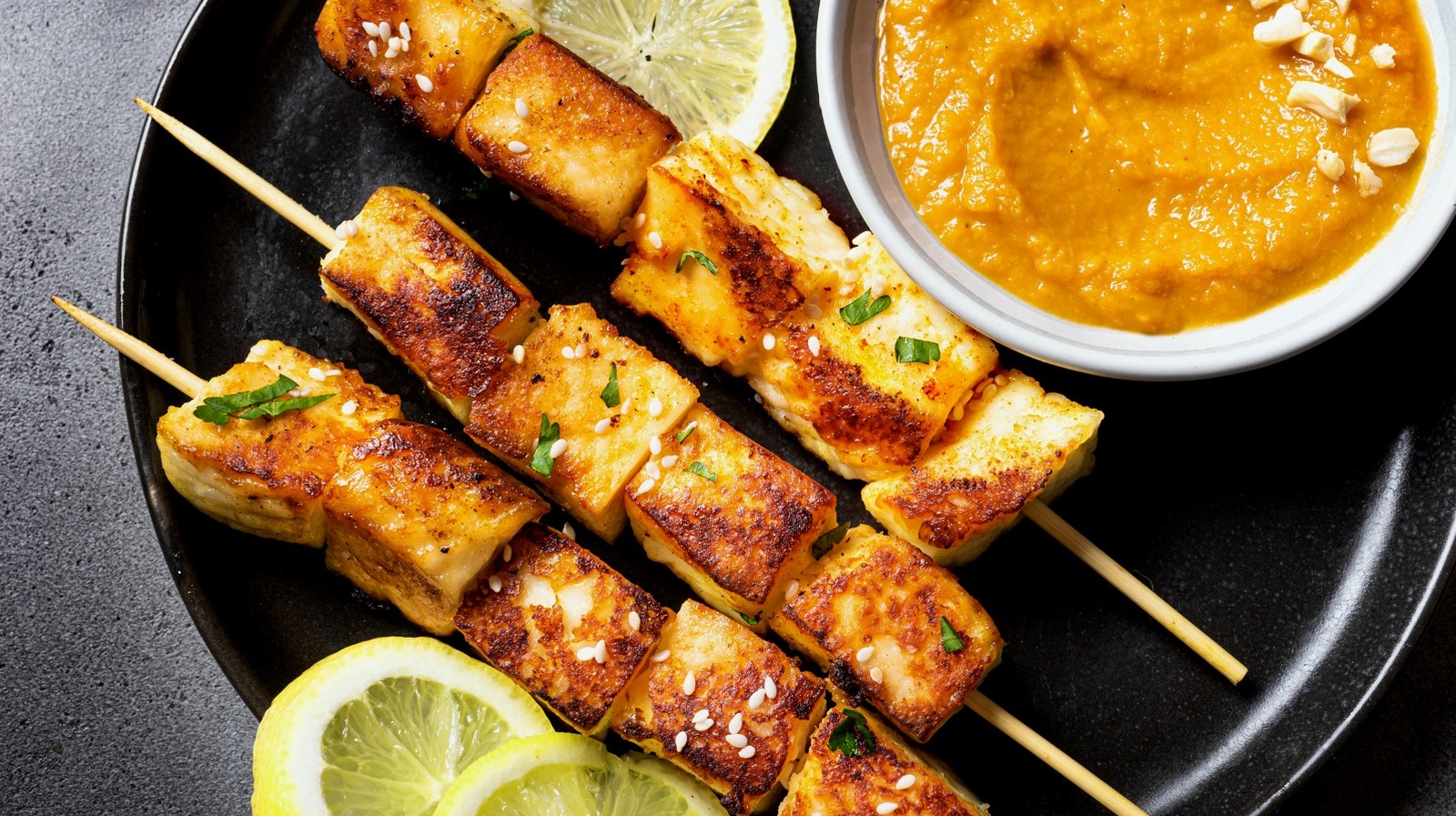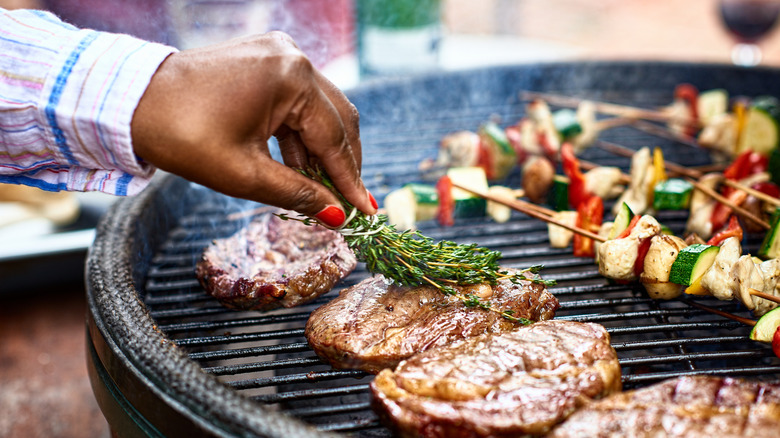Much like arranging the layers of a cake or mixing up a delicious, smoky cocktail, it’s important to consider the order of operations when firing up food on the grill. Smokiness can be a fickle flavor quality, and the type of fuel and how much you use can determine whether your food tastes pleasantly woodsy and smoldering or more like it was tossed in a chimney. To give your grilled food a fuller flavor without going overboard, Chowhound spoke with an expert to find the right ingredients and techniques.
Executive chef Wissam Baki runs the kitchen at Amal in Miami, Florida. He says that no matter the cooking method — whether smoking, braising, grilling, or cooking in foil packets — he always uses aromatics. Amal’s menu draws from the flavors of Lebanese cuisine, incorporating aromatic vegetables and spices into its dishes, such as the skewered chicken tawook and kefta made with beef and lamb.
“Depending on the flavor we want to achieve and how it pairs with the protein or vegetables, we’ll add herbs like rosemary, oregano, za’atar, tarragon, basil, sage, or bay leaves,” says Baki. “We also incorporate citrus peels (orange, lemon, or lime), along with garlic, onion, leeks, or celery to build depth and fragrance in the dish.”
How to incorporate aromatics for fuller-flavor grilling
Our senses of taste and smell are connected in many ways, and aromatic ingredients can shape how we experience food. These fragrant elements are powerful enough to flavor food without even touching it directly, similar to how the right wood pellet chips can transform your smoking and grilling experience. Chef Wissam Baki recommends placing aromatics, such as fresh herbs or citrus peels, underneath the grilled protein or onto the grill itself.
“As the heat rises and the fire burns, the aromatics release their fragrance, flavoring the food with the smoke of herbs and citrus. Smoking with pine chips, walnut wood, and herbs also adds deep, distinctive flavors,” he explains. The strength of the ingredients’ flavor can be stronger or weaker depending on where you place them on the grill rack. For a more forward flavor that relies on the ingredients themselves and less on the smoking element, you can combine fats and herbs to put on the protein. A dill and lemon-infused olive oil with vinegar works as a chicken and fish marinade. Whatever you choose, Baki suggests “ideally letting it marinate for at least an hour before cooking or grilling.”
This idea can also be applied during the cooking process. “Brushing steaks or fish with bundles of rosemary and thyme while grilling helps add aromatic flavor,” says Baki. “For example, you can dip the herb bundle in melted butter or olive oil and use it to baste the fish or meat as it cooks.”






